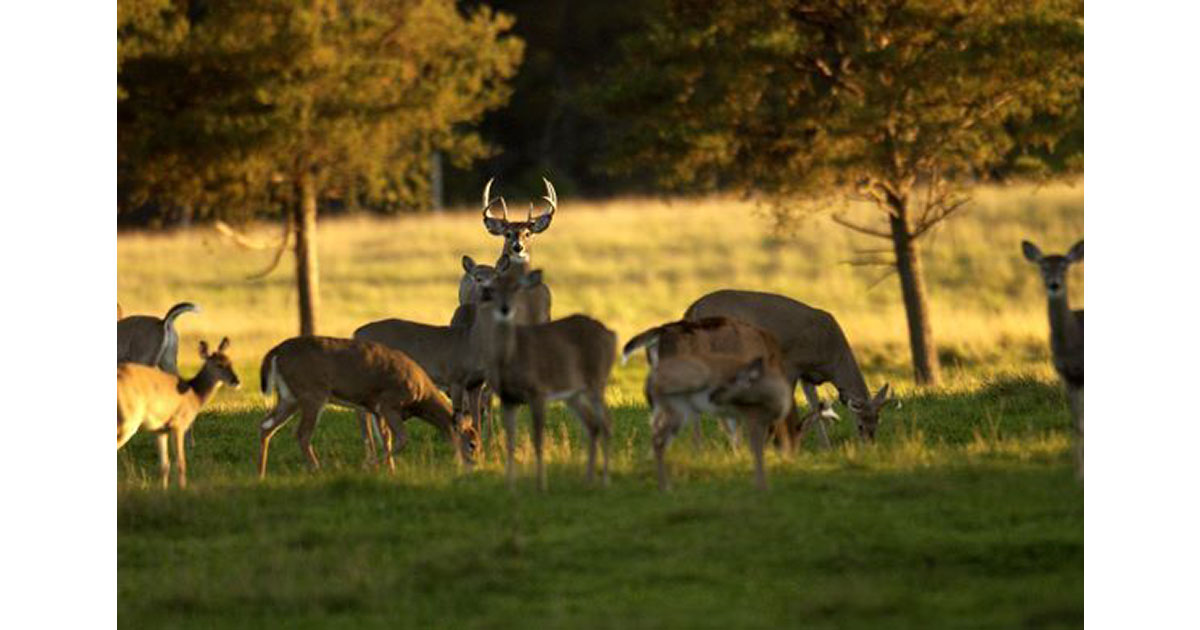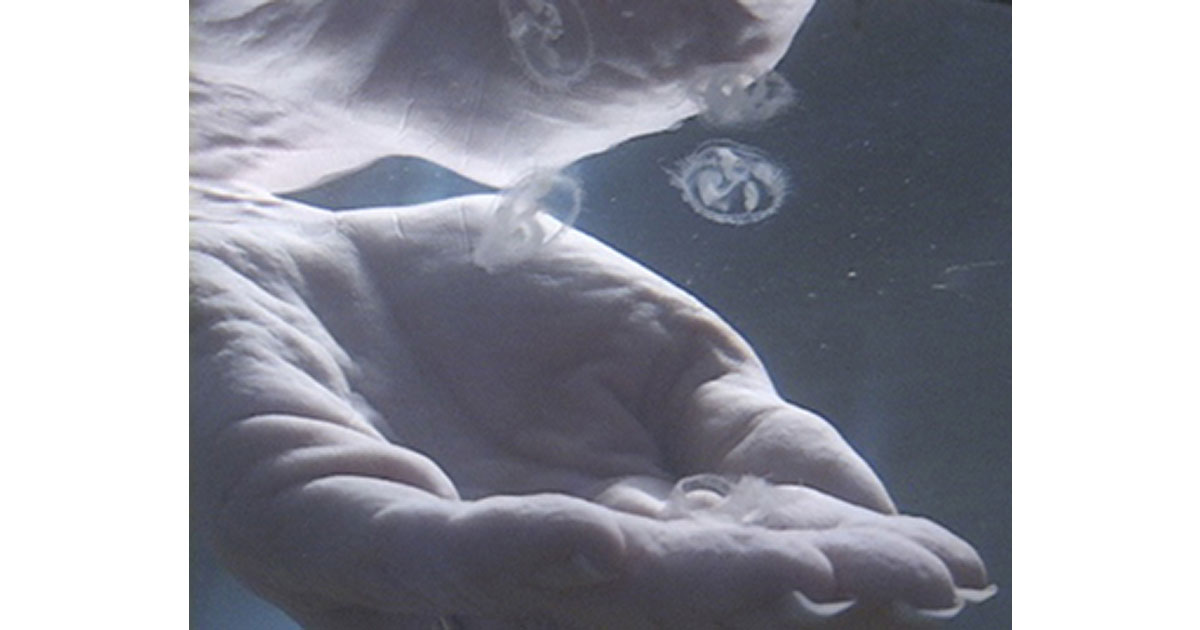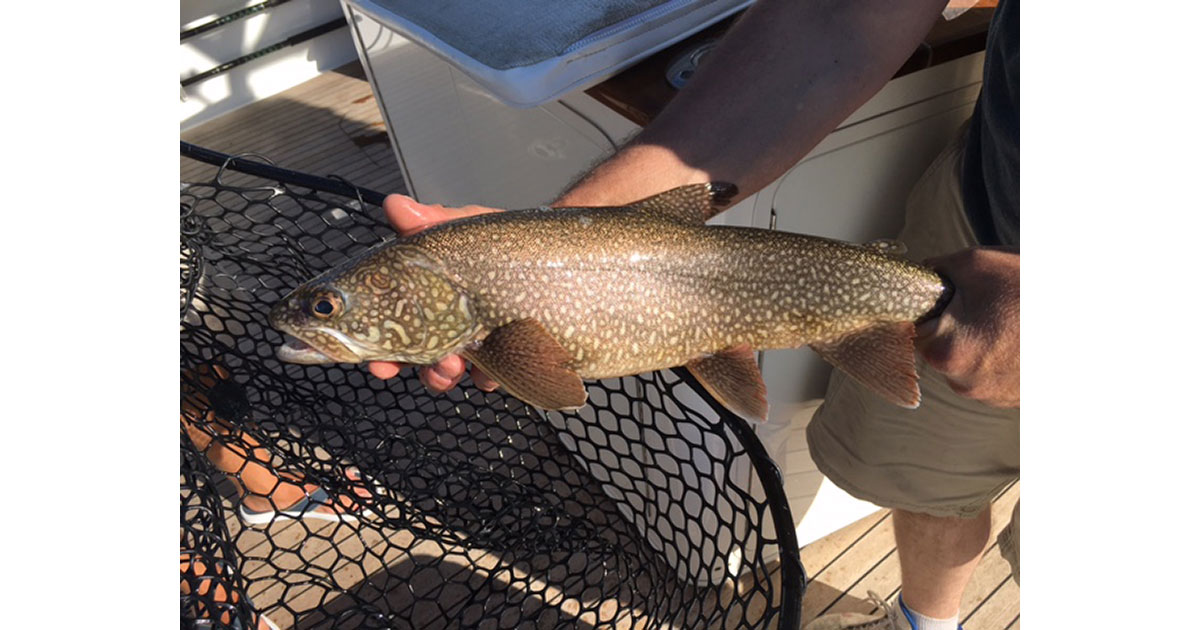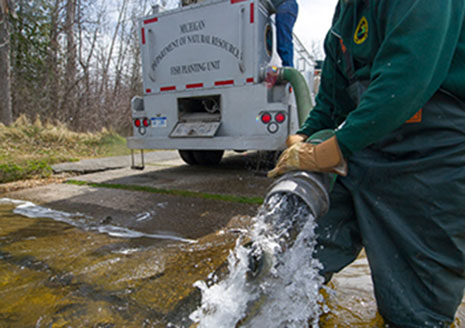- Details
MDNR Report

Genesee is now the 16th Michigan county where chronic wasting disease has been identified in the wild deer population, according to the Michigan DNR. An adult doe found acting ill in Gaines Township recently tested positive for the disease.
The CWD finding was confirmed by the Michigan State University Veterinary Diagnostic Laboratory, which works with the DNR to identify CWD in Michigan’s wild deer herd. The sample will be sent to the U.S. Department of Agriculture’s National Veterinary Services Laboratory in Ames, Iowa for secondary confirmation.
CWD is a fatal neurological disease that affects white-tailed deer, elk and moose. To date, the disease has also been detected in the following Michigan counties: Clinton, Dickinson, Eaton, Gratiot, Hillsdale, Ingham, Ionia, Isabella, Jackson, Kent, Mecosta, Midland, Montcalm, Ogemaw and Washtenaw.
CWD is a chronic, slow-developing disease that spreads slowly across the landscape. It can be present in new areas at very low levels, making it difficult to detect. Genesee County was under focused CWD surveillance in 2022, when approximately 300 deer were tested, with none testing positive. The DNR has continued to test deer that appear sick in Genesee County when possible.
The 2.5-year-old doe that tested positive was reported as very skinny and drinking continuously, and walked directly up to a conservation officer who responded to a public report. Public reporting of sick acting deer is one of the best tools available to the DNR for identifying CWD that may exist at low prevalence in previously undetected areas.
“We appreciate the support and cooperation of the public as they continue to report sick deer so our team can follow up with the necessary testing for confirmation,” said Brent Rudolph, DNR deer, elk and moose management specialist. “Though many reported deer turn out not to be infected, the care that’s demonstrated when people take the time to share their observations is a critical contribution to our disease-testing efforts.”
Deer that appear lethargic, disoriented, lame or unresponsive are good candidates for CWD testing, though these symptoms are characteristic of deer affected by other maladies or injuries as well. The public is encouraged to report sick deer at Michigan.gov/EyesInTheField.
The DNR’s work with researchers and hunters to detect and slow the spread of CWD is possible because of limited general fund dollars allocated by the Michigan state Legislature.
- Details
MDNR Report

As anglers, swimmers and other water recreation fans flocked to Michigan lakes and streams during the summer, some may catch a glimpse of a common, though rarely seen invertebrate known as the freshwater jellyfish. Don’t be concerned though — these jellyfish are not harmful to humans and are believed to have negligible adverse effects on the aquatic environment.
Freshwater jellyfish (Craspedacusta sowerbyi) are related to the various marine species of jellyfish, but in essence are not true jellyfish since they have a membrane called a velum that the marine species do not. Despite this difference, the appearance and movement of freshwater jellyfish mimic those of a true jellyfish. They are not native to Michigan or even North America and are believed to be native to China and Asia. However, this species has been found throughout most of North America for well over a century and is considered to be a nonharmful member of our aquatic communities, and certainly an intriguing one.
The first documentation of freshwater jellyfish in Michigan occurred in 1933 from the Huron River in southeast Michigan. Today, they can be found in most Michigan lakes and streams, and are most frequently spotted in lakes in the late summer and early fall.
Freshwater jellyfish are polymorphic, meaning that there are multiple forms of the same entity within a population.
The jellyfish life cycle includes the following steps:
- The jellyfish spend winter in bodies of water in a podocyst resting stage.
- As conditions become more favorable, such as during spring, the podocysts develop into polyps and continue the life cycle with asexual reproduction.
- By late summer, polyps develop into the medusa stage, which most resembles a free-swimming jellyfish. Jellyfish in this stage take an umbrella-shaped form and can range in size from a penny to a quarter. This is the life stage that is visible to the human eye and often observed during late summer.
"These are the sightings that often trigger calls to local DNR offices from curious spotters who have caught the rare glimpse of the invertebrate," said Tim Cwalinski, the DNR's northern Lake Huron manager. "Though freshwater jellyfish do have stinging cells like the marine species, their tiny size means they lack the ability to sting, and so they're not harmful to people. It is also believed to be unlikely that freshwater jellyfish could consume enough zooplankton in our bodies of water to negatively compete with fish species."
Cwalinski said that we generally think our waterways are inhabited only by fish, aquatic plants, waterfowl and various invertebrates. However, there is an entire other spectrum of life under the surface, such as plankton, bryozoans and jellyfish.
"If you're among those to observe a single medusa stage or colony of freshwater jellyfish this year in our lakes or slow-moving streams, consider yourself fortunate, don't panic, and understand this is simply an invertebrate that has inhabited most of our waterways for a century."
- Details
By SHAWN SITAR, Fisheries research biologist
Michigan Department of Natural Resources

The oldest known lake trout in the Great Lakes, 62 years old at the time of capture, was recently documented by researchers at the Michigan DNR Marquette Fisheries Research Station.
This fish was collected from Klondike Reef in Lake Superior in the fall of 2023 by a team of intrepid researchers from the DNR, U.S. Fish and Wildlife Service, University of Wisconsin-Milwaukee and Purdue University.
Age is one of most important variables in tracking population health for fish, and this finding indicates that lake trout indeed live long and prosper in Lake Superior.
In March 2024, Dan Traynor, fisheries technician at the Marquette Fisheries Research Station, was working in the lab, processing samples collected in September 2023 at Klondike Reef, a remote offshore area near the Canadian border, 40 miles north of Grand Marais.
Traynor, one of the few experts on the age assessment of lake trout in North America, assigned the age of a humper lake trout collected during the survey. Humper lake trout are one subspecies of the fish found in offshore lake mounts in Lake Superior. They are slow-growing and don’t get very large because they mostly feed on invertebrates.
The fish was female, weighed 2.1 kilograms (4.62 pounds) and was 627 millimeters (24.7 inches) in length. These stats aren’t remarkable – the longest collected by the Marquette Fisheries Research Station was 1,350 millimeters (53.1 inches) and the heaviest collected was 16.1 kilograms (35.5 pounds). The state record for Michigan is 61.5 pounds.
What was remarkable was the lake trout’s age, estimated to be 62 years old – the oldest documented lake trout in the Great Lakes.
This fish, that DNR staff has named “Mary Catherine,” hatched in 1961 (Mary was one of the most common names for babies born that year). When Grandma Mary Catherine hatched, the U.S. president was John F. Kennedy and Yuri Gagarin was the first human to go into outer space.
If fish went to school (high school that is, not just schools of fish), she would have graduated from Klondike Reef High School in the same year as Meg Ryan, Princess Diana and Barack Obama reached that milestone.
Age can be measured in fish with multiple body structures, such as spines. For lake trout, the otolith, or ear stone, is the most reliable indicator of age. The otolith is in the inner ear – humans have them, too – and as the fish grows, so does the otolith.
This growth leaves rings each winter, similar to tree rings, which can then be counted to estimate the fish’s age.
- Details
MDNR Report
Fishing is a cherished pastime for many Michiganders. Bringing along family, friends and young people helps preserve the tradition, but to keep our waters healthy and thriving for the next generation, be sure you aren’t also bringing invasive species to your favorite fishing spots.
Invasive species are those that are not native and whose introduction causes harm, or is likely to cause harm, to Michigan's economy, environment or human health. Most often, invasive species are unintentionally introduced to new places when they become attached to the boats, waders and gear anglers bring on fishing trips.
Michigan’s waters are seeing increased effects from invasive aquatic plants like starry stonewort and European frog-bit, which can choke out habitat and limit fishing access. When these plants get caught on motors, trailers, nets and lines, they can be carried to the next fishing spot. Many aquatic invasive plants can sprout from plant fragments, seeds or tiny buds called turions that can go unnoticed without careful inspection.
Invasive mussels, snails and fish are altering natural food webs in lakes, rivers and streams.
“Zebra mussel larvae, New Zealand mudsnails and didymo cells are hard to see, but they can attach to things like boats, waders and gear,” said Justin Bopp, aquatic invasive species coordinator with the Michigan Department of Natural Resources. “If surfaces are damp, they can survive for several days or even a week. In the same way, water left in bilges, ballast tanks and live wells can carry these tiny organisms and even fish diseases to new locations.”
- Details
MDNR Report

April showers bring May flowers, and spring and summer fish stocking bring fall fishing! This spring and summer, the Michigan DNR stocked a total of 18,958,970 fish that weighed more than 331.5 tons and consisted of 10 different species and one hybrid.
Fish stocking is an important activity to provide both Michigan residents and visitors with quality fishing opportunities. These efforts help bring an estimated $3.9 billion into the state's economy through the sportfishing industry, tourism and related businesses.
To complete the task of stocking, it took 417 stocking trips and 2,345 hours. Crews traveled just over 91,000 miles in 17 specialized stocking trucks to get to the 716 stocking sites. Despite the severe ice storm that affected northern Michigan, which caused a loss of power and transition to backup power for several days at Oden State Fish Hatchery, no fish were lost due to the storm, allowing the DNR to meet its stocking goals.
"We had another excellent spring and summer stocking season that will bring ecological benefits and fishing opportunities to Michigan anglers," said Aaron Switzer, DNR fish production manager. "Thanks to the hard work and dedication of our staff, healthy, high-quality fish were reared and delivered to stocking sites in excellent condition. The numbers produced and stocked hit the targets for most areas."


